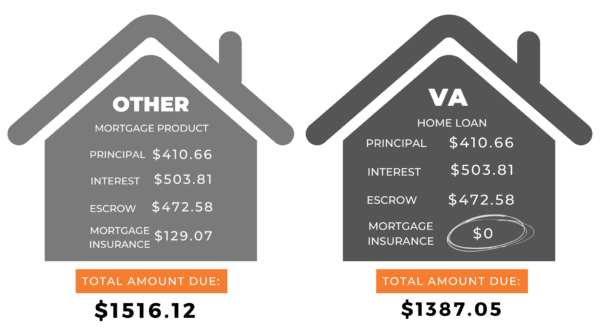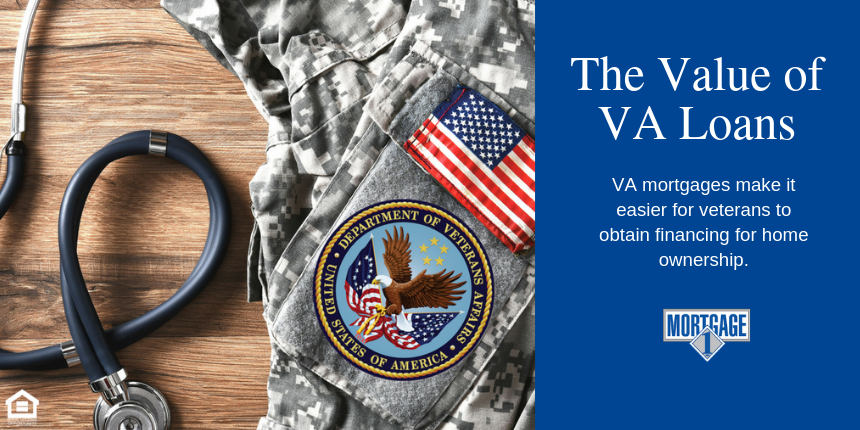VA Home Loans: Exclusive Perks for Veterans and Active Duty Service Members
VA Home Loans: Exclusive Perks for Veterans and Active Duty Service Members
Blog Article
Making The Most Of the Perks of Home Loans: A Detailed Strategy to Safeguarding Your Perfect Residential Or Commercial Property
Browsing the complex landscape of home finances calls for a systematic method to guarantee that you protect the building that lines up with your economic goals. To truly make the most of the benefits of home financings, one need to consider what steps follow this fundamental job.
Recognizing Home Financing Fundamentals
Understanding the fundamentals of home mortgage is necessary for any person thinking about buying a home. A mortgage, typically described as a home loan, is a financial item that enables people to obtain cash to copyright estate. The customer accepts repay the financing over a specified term, typically varying from 15 to 30 years, with passion.
Key components of mortgage consist of the primary quantity, rate of interest prices, and settlement routines. The principal is the quantity borrowed, while the passion is the expense of loaning that quantity, expressed as a portion. Rates of interest can be dealt with, staying constant throughout the finance term, or variable, fluctuating based upon market conditions.
In addition, borrowers need to understand different kinds of home mortgage, such as standard car loans, FHA loans, and VA fundings, each with distinctive eligibility criteria and advantages. Recognizing terms such as down repayment, loan-to-value proportion, and exclusive mortgage insurance (PMI) is likewise crucial for making notified choices. By grasping these basics, potential house owners can navigate the complexities of the mortgage market and identify choices that line up with their economic goals and residential property desires.
Assessing Your Financial Situation
Assessing your financial scenario is an essential step prior to embarking on the home-buying trip. Next, list all monthly expenditures, ensuring to account for fixed costs like rent, energies, and variable costs such as groceries and entertainment.
After developing your income and expenditures, identify your debt-to-income (DTI) proportion, which is necessary for loan providers. This proportion is determined by dividing your overall monthly debt settlements by your gross regular monthly revenue. A DTI ratio listed below 36% is normally taken into consideration beneficial, suggesting that you are not over-leveraged.
Furthermore, assess your credit report, as it plays a crucial function in safeguarding beneficial lending terms. A greater credit history can lead to lower rates of interest, eventually conserving you money over the life of the loan.

Checking Out Financing Alternatives
With a clear picture of your financial situation developed, the next step involves exploring the various lending options available to prospective property owners. Comprehending the different kinds of home mortgage is vital in choosing the right one for your needs.
Standard fundings are standard financing methods that typically require a greater credit rating and deposit yet deal competitive rates of interest. On the other hand, government-backed finances, such as FHA, VA, and USDA fundings, accommodate specific teams and frequently call for lower down repayments and credit report, making them accessible for new buyers or those with minimal monetary sources.
An additional choice is adjustable-rate home mortgages (ARMs), which include reduced preliminary rates that readjust after a specified period, potentially bring about significant savings. Fixed-rate home loans, on the various other hand, offer security with a consistent rate of interest throughout the lending term, guarding you against market changes.
In addition, consider the loan term, which usually ranges from 15 to thirty years. Much shorter terms may have higher month-to-month payments however can save you rate of interest with time. By carefully examining these alternatives, you can make an educated choice that straightens with your economic goals and homeownership goals.
Planning For the Application
Efficiently preparing for the application process is necessary for safeguarding a mortgage. This phase lays the foundation for obtaining favorable lending terms and ensures a smoother authorization experience. Begin by assessing your monetary scenario, that includes assessing your credit report, revenue, and existing financial obligation. A solid debt rating is critical, as it affects the lending amount and rate of interest rates offered to you.
Next, collect required documentation. Usual requirements include current pay stubs, income tax return, bank declarations, and proof of possessions. Organizing these files beforehand can dramatically accelerate the application procedure. In addition, think about getting a pre-approval from loan providers. When making a deal on a residential or commercial property., this not just gives a clear understanding index of your borrowing capacity however also enhances your setting.
Moreover, determine your budget plan by considering not just the financing quantity but additionally home tax obligations, insurance policy, and maintenance expenses. Familiarize yourself with different financing kinds and their particular terms, as this understanding will certainly encourage you to make informed decisions during the application procedure. By taking these proactive actions, you will certainly boost your preparedness and increase your opportunities of securing the home mortgage that ideal fits your needs.
Closing the Deal

Throughout the closing conference, you will assess and sign various papers, such as the finance quote, shutting disclosure, and home loan arrangement. It is critical to completely recognize these records, as they lay out the finance terms, payment timetable, and closing costs. Put in the time to ask your loan provider or actual estate agent any kind of questions you might have to prevent misconceptions.
Once all documents are authorized and funds are transferred, you will obtain the keys to your new home. Remember, closing expenses can differ, so be prepared for costs that might include evaluation fees, title insurance, and attorney costs - VA Home Loans. By remaining organized visite site and notified throughout this procedure, you can ensure a smooth transition into homeownership, taking full advantage of the advantages of your home mortgage
Verdict
Finally, taking full advantage of the benefits of mortgage necessitates an organized method, including an extensive assessment of financial circumstances, exploration of diverse financing alternatives, and thorough preparation for the application procedure. By adhering to these actions, potential house owners can enhance their opportunities of protecting beneficial funding and achieving their home ownership goals. Ultimately, mindful navigation of the closing process further solidifies an effective change into homeownership, ensuring long-lasting economic stability and contentment.
Browsing the complex landscape of home financings requires a methodical strategy to guarantee that you secure the residential property that lines up with your economic objectives.Comprehending the fundamentals of home lendings is essential for anyone thinking Website about buying a residential or commercial property - VA Home Loans. A home finance, commonly referred to as a home loan, is a financial item that permits people to borrow cash to get real estate.In addition, debtors ought to be aware of numerous types of home loans, such as standard car loans, FHA lendings, and VA financings, each with distinctive eligibility criteria and benefits.In verdict, optimizing the advantages of home loans demands an organized method, incorporating a complete analysis of monetary conditions, exploration of varied lending choices, and meticulous preparation for the application procedure
Report this page